Welcome!
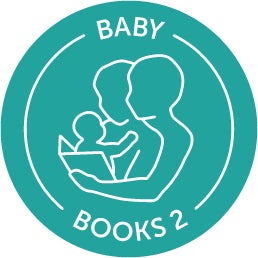
The purpose of this website is to spread the word about BB2 project. Please don’t hesitate to contact us if you have any questions.
About BB2
BB2 recruits parents and their babies born in 2016 and 2017. It is funded through the federal government’s National Institute of Child Health and Development (NICHD).
Baby Books 2 is a five-year collaboration between the University of Maryland and the University of California, Irvine. The focus of this longitudinal study is on the literacy practices of first-time mothers and fathers and their infants. The overarching goal of the project is to develop an understanding of the unique ways that reading practices, family contexts, parent-child relationships and individual differences influence development and competencies in children. The hope is that the data we collect will support children and new parents in the future by helping to create programs for the entire family that foster family and child well being.
BB2 has two sites: one in Maryland and one in California. First-time mothers and fathers who live together and have a young child are able to be in the study. All books are bilingual, in Spanish and English.
As part of the study, we will visit families’ homes four times and call them on the phone every few months. During the home visits, we will interview mothers and fathers and watch them read and play with their baby. Phone calls are shorter and will ask questions about reading, how the child is doing, and how parents are doing.
Families will be paid up to $480 ($240 per parent) and do not have to have a social security number to be in the study.
We believe that BB2 is a very enjoyable project for families and we are grateful to all the families interested in participating in this project.
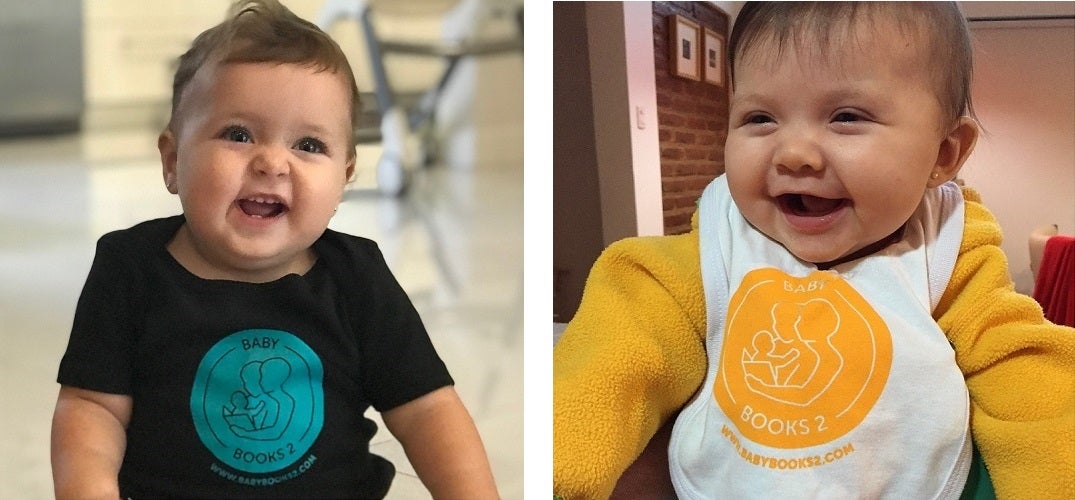
We have officially finished enrollment for the Baby Books 2 project. If you are interested in future opportunities, you can call or email us with your contact information. Thank you for your interest!
In light of the coronavirus (COVID-19), we have put together a list of resources and parenting tips below (in English and Español) that we hope you may find helpful:
Esperamos que le resulten útiles los recursos y consejos parentales que hemos recopilado en español e inglés para ayudarle durante el coronavirus (COVID-19):
Tips for Parents - English.pdf
Consejos Parentales - Español.pdf
If you ever need to contact us, please don’t hesitate to call us at 301-405-7486 (UMD) or email us at babybooks2@gmail.com (UMD) or babybooks2@uci.edu (UCI). This information is also available on our contact page.
Principal Investigators


Project Coordinators

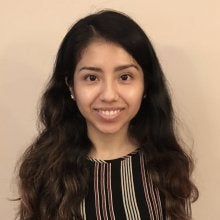

Data Manager

Graduate Research Assistants
Kelsey McKee is a fourth-year doctoral student in Human Development. She received her Bachelor of Science degree in Psychology from Arizona State University. Her past experience includes conducting in-home intervention programs with the Arizona child welfare system. Her interests lie in how parenting interventions can promote positive parent-child relationships and help parents to support children’s early social and emotional development, particularly low-income communities.
Avery Hennigar is a fourth-year doctoral student in Human Development. She received her Bachelor of Science in Public Health, Bachelor of Arts in Psychology, and Master of Public Health from the University of Massachusetts Amherst. Avery's research interests focus on how structural and social factors influence parent-child relationships and how interventions can be most effective for low income families. Specifically, she is interested in examining the challenges related to juggling low wage work and family life and the impact of parents' mental health on child outcomes.


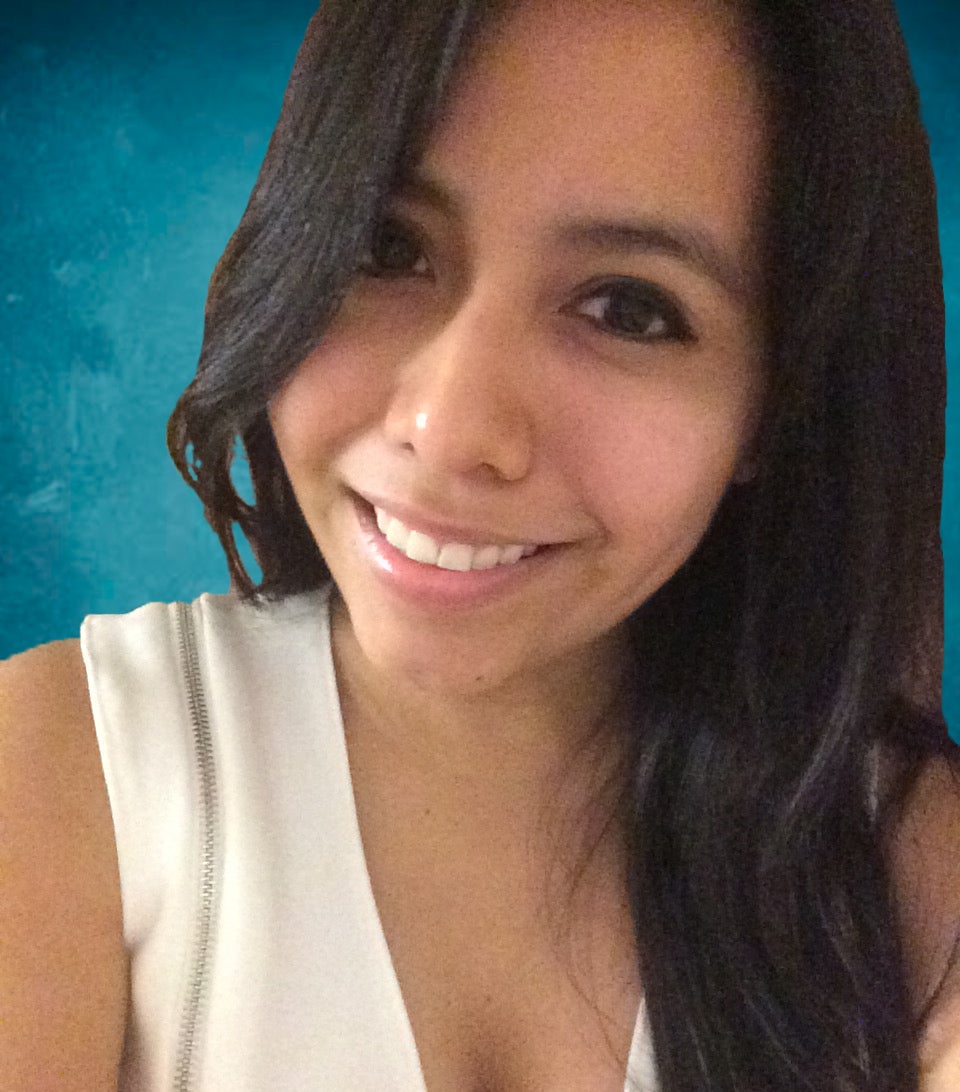
Maritza Morales-Gracia is a second-year Ph.D. student in the School of Education at the University of California, Irvine with a specialization in Education Policy and Human Development in Context (EPSC/HDiC). Maritza earned her master’s degree in Developmental Psychology from Teachers College, Columbia University and received dual Bachelor's in Psychology and Human Development (Child Development Emphasis) from California State University, San Bernardino. She has previously worked as a researcher within the Department of Pediatrics at NYU Langone Medical Center, The National Center for Children and Families, and the Neurocognition, Early Experience, and Development (NEED) Lab. Her professional and personal bicultural/bilingual experiences are what motivate her research interest in anti-poverty policy, parenting, educational equity, and social justice. Through her research she aims to effectively advocate for—and inform evidence-based family policies as a means to increase upward mobility and access to high quality education for ethno-culturally, linguistically, and socioeconomically diverse groups, in particular within Latinx children and families. Her long-term goal is to become a faculty member at a top research institution and utilize that platform to diversify academia by supporting underrepresented students and their families.

Research Assistants

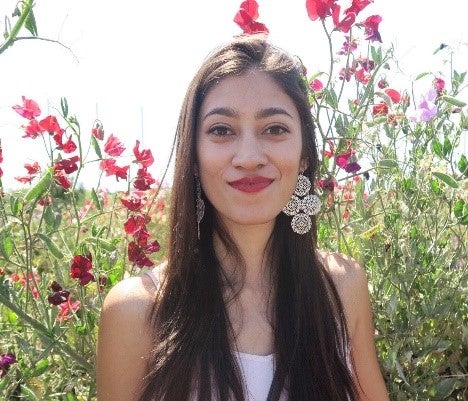


Baby Books 2 in Chile

Contact Information
University of Maryland-College Park
To reach our UMD office for questions, please call 301-405-7486 or email babybooks2@gmail.com
University of California-Irvine
To reach our UCI office for questions, please call 1-949-824-8864 or email BabyBooks2@uci.edu.
Why is this research important?
Research on mothers, fathers, and their babies helps to us to learn how to improve family life and the future of our children. Such research can influence policy and promote healthy families as well as improve children’s skills so they can be ready to succeed in school.
Where does your funding come from?
Our research is funded by the National Institute of Health.
How can I contact the Baby Books 2 team?
We can be contacted by our toll free 800 number, or via email. See the contact page for details.
Why is it important that my family stay involved in the study?
Our study follows families over two years. During this time we will learn more about book reading and how your child is growing and developing. Mothers and fathers will receive information about child development and how to be best care for their babies. Working with families over time is the best way to learn about how children grow and develop. So once you sign up, we hope you continue until the end of the study (when your baby is 30 months old). We understand that this is can be hard for a new family, and we are grateful for the time it takes for you to be in our study. Because of this, you will be paid for each home visit and phone call.
Am I eligible for the study?
Currently this study is open to first-time mothers and fathers who live together with an infant age 9 months or younger. The study is currently only in English and Spanish.
Are you currently accepting applicants?
Yes! Please see our contact page to either call or email us and a researcher will be in touch shortly. Thank you!
How do you keep our families information private?
All of your family’s information is password protected and cloud-based and can only be accessed by authorized researchers.
Your participation is voluntary. That means you are free to stop at any time or skip any part of the visit and/or questions you want. Your participation in this research is completely confidential. That means that your name will not be on any of the information we collect. Instead, we will replace all mothers, fathers, and babies’ names with a number. Data are kept securely and only researchers involved with the study will have access to the information collected.
What compensation is provided for participating?
Participants will be paid for every interview they complete. Each adult parent participant will be paid up to $240 in cash or by check. ($480 per family). Payments will occur after each data collection episode (provided in-person during home visits and mailed following phone calls). Please see the chart below for more information.
Child Age | Type of Contact | $ Amount per parent | |||||||||||||||||||||||||||||||||||||||||||||||||||||||||||||||||||||||||||||||||||||||||||||||||||||||||||||||||||||||||||||||||||||||||||||||||||||||||||||||||||||||||||||||||||||||||||||||||||||||||||||||||||||||||||||||||||||||||||||||||||||||||||||||||||||||||||||||||||||||||||||||||||||||||||||||||||||||||||||||||||||||||||||||||||||||||||||||||||||||||||||||||||||||||||||||||||||||||||||||||||||||||||||||||||||||||||||||||||||||||||||||||||||||||||||||||||||||||||||||||||||||||||||||||||||||||||||||||||||||||||||||||||||||||||||||||||||||||||||||||||||||||||||||||||||||||||||||||||||||||||||||||||||||||||||||||||||||||||||||||||||||||||||||||||||||||||||||||||||||||||||||||||||||||||||||||||||||||||||||||||||||||||||||||||||||||||||||||||||||||||||||||||||||||||||||||||||||||||||||||||||||||||||||||||||||||||||||||||||||||||||||||||||||||||||||||||||||||||||||||||||||||||||||||||||||||||||||||||||||||||||||||||||||||||||||||||||||||||||||||||||||||||||||||||||||||||||||||||||
9 month | Home visit | $50 | |||||||||||||||||||||||||||||||||||||||||||||||||||||||||||||||||||||||||||||||||||||||||||||||||||||||||||||||||||||||||||||||||||||||||||||||||||||||||||||||||||||||||||||||||||||||||||||||||||||||||||||||||||||||||||||||||||||||||||||||||||||||||||||||||||||||||||||||||||||||||||||||||||||||||||||||||||||||||||||||||||||||||||||||||||||||||||||||||||||||||||||||||||||||||||||||||||||||||||||||||||||||||||||||||||||||||||||||||||||||||||||||||||||||||||||||||||||||||||||||||||||||||||||||||||||||||||||||||||||||||||||||||||||||||||||||||||||||||||||||||||||||||||||||||||||||||||||||||||||||||||||||||||||||||||||||||||||||||||||||||||||||||||||||||||||||||||||||||||||||||||||||||||||||||||||||||||||||||||||||||||||||||||||||||||||||||||||||||||||||||||||||||||||||||||||||||||||||||||||||||||||||||||||||||||||||||||||||||||||||||||||||||||||||||||||||||||||||||||||||||||||||||||||||||||||||||||||||||||||||||||||||||||||||||||||||||||||||||||||||||||||||||||||||||||||||||||||||||||||
12 month | Phone call | $20 | |||||||||||||||||||||||||||||||||||||||||||||||||||||||||||||||||||||||||||||||||||||||||||||||||||||||||||||||||||||||||||||||||||||||||||||||||||||||||||||||||||||||||||||||||||||||||||||||||||||||||||||||||||||||||||||||||||||||||||||||||||||||||||||||||||||||||||||||||||||||||||||||||||||||||||||||||||||||||||||||||||||||||||||||||||||||||||||||||||||||||||||||||||||||||||||||||||||||||||||||||||||||||||||||||||||||||||||||||||||||||||||||||||||||||||||||||||||||||||||||||||||||||||||||||||||||||||||||||||||||||||||||||||||||||||||||||||||||||||||||||||||||||||||||||||||||||||||||||||||||||||||||||||||||||||||||||||||||||||||||||||||||||||||||||||||||||||||||||||||||||||||||||||||||||||||||||||||||||||||||||||||||||||||||||||||||||||||||||||||||||||||||||||||||||||||||||||||||||||||||||||||||||||||||||||||||||||||||||||||||||||||||||||||||||||||||||||||||||||||||||||||||||||||||||||||||||||||||||||||||||||||||||||||||||||||||||||||||||||||||||||||||||||||||||||||||||||||||||||||
15 month | Phone Call | $20 | |||||||||||||||||||||||||||||||||||||||||||||||||||||||||||||||||||||||||||||||||||||||||||||||||||||||||||||||||||||||||||||||||||||||||||||||||||||||||||||||||||||||||||||||||||||||||||||||||||||||||||||||||||||||||||||||||||||||||||||||||||||||||||||||||||||||||||||||||||||||||||||||||||||||||||||||||||||||||||||||||||||||||||||||||||||||||||||||||||||||||||||||||||||||||||||||||||||||||||||||||||||||||||||||||||||||||||||||||||||||||||||||||||||||||||||||||||||||||||||||||||||||||||||||||||||||||||||||||||||||||||||||||||||||||||||||||||||||||||||||||||||||||||||||||||||||||||||||||||||||||||||||||||||||||||||||||||||||||||||||||||||||||||||||||||||||||||||||||||||||||||||||||||||||||||||||||||||||||||||||||||||||||||||||||||||||||||||||||||||||||||||||||||||||||||||||||||||||||||||||||||||||||||||||||||||||||||||||||||||||||||||||||||||||||||||||||||||||||||||||||||||||||||||||||||||||||||||||||||||||||||||||||||||||||||||||||||||||||||||||||||||||||||||||||||||||||||||||||||||
18 month | Home Visit | $40 | |||||||||||||||||||||||||||||||||||||||||||||||||||||||||||||||||||||||||||||||||||||||||||||||||||||||||||||||||||||||||||||||||||||||||||||||||||||||||||||||||||||||||||||||||||||||||||||||||||||||||||||||||||||||||||||||||||||||||||||||||||||||||||||||||||||||||||||||||||||||||||||||||||||||||||||||||||||||||||||||||||||||||||||||||||||||||||||||||||||||||||||||||||||||||||||||||||||||||||||||||||||||||||||||||||||||||||||||||||||||||||||||||||||||||||||||||||||||||||||||||||||||||||||||||||||||||||||||||||||||||||||||||||||||||||||||||||||||||||||||||||||||||||||||||||||||||||||||||||||||||||||||||||||||||||||||||||||||||||||||||||||||||||||||||||||||||||||||||||||||||||||||||||||||||||||||||||||||||||||||||||||||||||||||||||||||||||||||||||||||||||||||||||||||||||||||||||||||||||||||||||||||||||||||||||||||||||||||||||||||||||||||||||||||||||||||||||||||||||||||||||||||||||||||||||||||||||||||||||||||||||||||||||||||||||||||||||||||||||||||||||||||||||||||||||||||||||||||||||||
21 month | Phone call | $20 | |||||||||||||||||||||||||||||||||||||||||||||||||||||||||||||||||||||||||||||||||||||||||||||||||||||||||||||||||||||||||||||||||||||||||||||||||||||||||||||||||||||||||||||||||||||||||||||||||||||||||||||||||||||||||||||||||||||||||||||||||||||||||||||||||||||||||||||||||||||||||||||||||||||||||||||||||||||||||||||||||||||||||||||||||||||||||||||||||||||||||||||||||||||||||||||||||||||||||||||||||||||||||||||||||||||||||||||||||||||||||||||||||||||||||||||||||||||||||||||||||||||||||||||||||||||||||||||||||||||||||||||||||||||||||||||||||||||||||||||||||||||||||||||||||||||||||||||||||||||||||||||||||||||||||||||||||||||||||||||||||||||||||||||||||||||||||||||||||||||||||||||||||||||||||||||||||||||||||||||||||||||||||||||||||||||||||||||||||||||||||||||||||||||||||||||||||||||||||||||||||||||||||||||||||||||||||||||||||||||||||||||||||||||||||||||||||||||||||||||||||||||||||||||||||||||||||||||||||||||||||||||||||||||||||||||||||||||||||||||||||||||||||||||||||||||||||||||||||||||
24 month | Home visit | $40 | |||||||||||||||||||||||||||||||||||||||||||||||||||||||||||||||||||||||||||||||||||||||||||||||||||||||||||||||||||||||||||||||||||||||||||||||||||||||||||||||||||||||||||||||||||||||||||||||||||||||||||||||||||||||||||||||||||||||||||||||||||||||||||||||||||||||||||||||||||||||||||||||||||||||||||||||||||||||||||||||||||||||||||||||||||||||||||||||||||||||||||||||||||||||||||||||||||||||||||||||||||||||||||||||||||||||||||||||||||||||||||||||||||||||||||||||||||||||||||||||||||||||||||||||||||||||||||||||||||||||||||||||||||||||||||||||||||||||||||||||||||||||||||||||||||||||||||||||||||||||||||||||||||||||||||||||||||||||||||||||||||||||||||||||||||||||||||||||||||||||||||||||||||||||||||||||||||||||||||||||||||||||||||||||||||||||||||||||||||||||||||||||||||||||||||||||||||||||||||||||||||||||||||||||||||||||||||||||||||||||||||||||||||||||||||||||||||||||||||||||||||||||||||||||||||||||||||||||||||||||||||||||||||||||||||||||||||||||||||||||||||||||||||||||||||||||||||||||||||||
30 month | Home visit | $50 | |||||||||||||||||||||||||||||||||||||||||||||||||||||||||||||||||||||||||||||||||||||||||||||||||||||||||||||||||||||||||||||||||||||||||||||||||||||||||||||||||||||||||||||||||||||||||||||||||||||||||||||||||||||||||||||||||||||||||||||||||||||||||||||||||||||||||||||||||||||||||||||||||||||||||||||||||||||||||||||||||||||||||||||||||||||||||||||||||||||||||||||||||||||||||||||||||||||||||||||||||||||||||||||||||||||||||||||||||||||||||||||||||||||||||||||||||||||||||||||||||||||||||||||||||||||||||||||||||||||||||||||||||||||||||||||||||||||||||||||||||||||||||||||||||||||||||||||||||||||||||||||||||||||||||||||||||||||||||||||||||||||||||||||||||||||||||||||||||||||||||||||||||||||||||||||||||||||||||||||||||||||||||||||||||||||||||||||||||||||||||||||||||||||||||||||||||||||||||||||||||||||||||||||||||||||||||||||||||||||||||||||||||||||||||||||||||||||||||||||||||||||||||||||||||||||||||||||||||||||||||||||||||||||||||||||||||||||||||||||||||||||||||||||||||||||||||||||||||||||